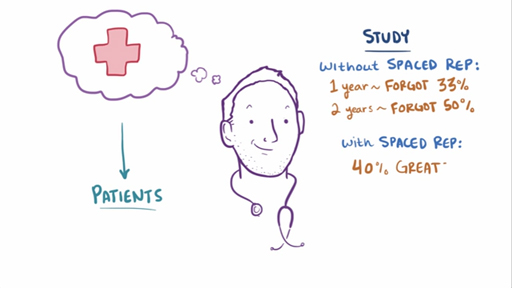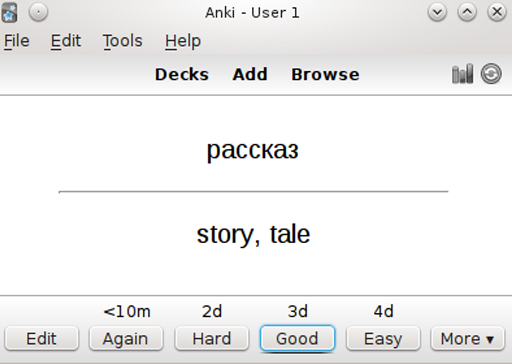6.5 Spacing
One final very useful encoding strategy is spacing. When you prepare for an exam, do you spend a bit of time every day over several weeks studying for it, or are you a crammer, and leave it all till the last day and binge-study? Well, you might not be surprised to learn that ‘little and often’ is a much more effective encoding strategy than last-minute cramming. So, when you learn any aspect of the language, but especially vocabulary, learn a little every day.
Here's how it works! And although the video is aimed at medics rather than language learners, it all transfers to learning vocabulary!

Activity 5 Evaluating spaced repetition
So, spaced repetition can help you to learn vocabulary by making you review the words you can’t remember, rather than those that you can. There are lots of Spaced Repetition Software (or SRS) apps and software available. Try two or three to see which one you like best. Remember you might want to refer back to the framework for evaluating resources that Fernando introduced in Week 3.
Here are some you can try out:
Anki [Tip: hold Ctrl and click a link to open it in a new tab. (Hide tip)]
Discussion
I hope having a look at several flashcard apps has given you an idea of how they work and how spaced repetition can be a useful tool for learning new vocabulary. Over the next few days keep practising with one or two of them to understand their benefits more fully.
In this section, you have been introduced to a number of effective, effortful encoding strategies that will help you encode vocabulary into your long-term memory.
Now watch the following video as a recap of these strategies : Encoding strategies

